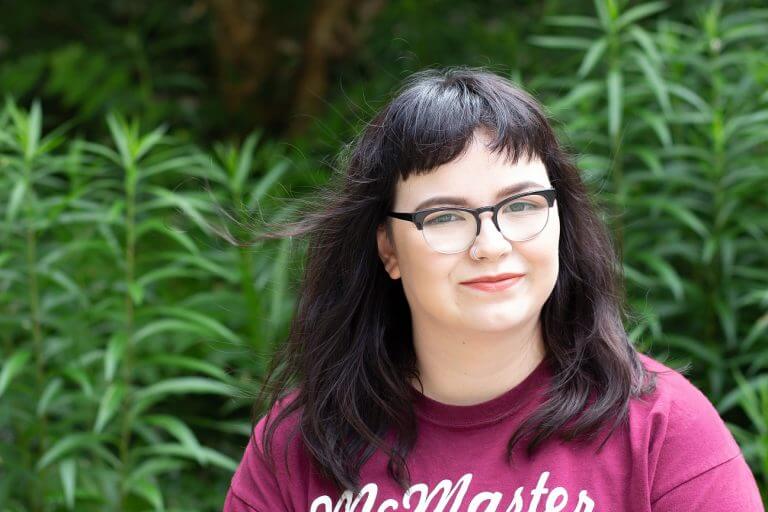By: Tory Dockree, Tabatha May, and Emily Meilleur-Rivers
We weren’t always like this; there was a time when we tried to function without a schedule other than our classes and part-time work. For us, this meant that there were large stretches of time that we threw away in favour of doing all of our work in the final hours.
When we first started to schedule, we had a tendency towards the other extreme, over-scheduling. We thought that if we blocked off back-to-back time for class, reading, studying, work, and social outings that we would simply go from place to place without hesitation or burnout. That didn’t work well for us either, and we were soon overwhelmed by the fact that so much of our time was booked so rigidly. With this in mind, we recommend that you approach scheduling by first thinking about your existing relationship to it.
Now that you’ve started to establish how you already feel about scheduling (Does it come naturally to you? Is it a bit daunting and unfamiliar?), it might be helpful to break things down so that they are digestible. We like to think about scheduling from the yearly level all the way down to a to-do list. This allows us to consider the big picture, as well as smaller details without getting overwhelmed.
The reason that we find this so exciting is actually a bit self-serving; it is true that if you schedule effectively, you won’t be distracted by thoughts of looming deadlines and can instead enjoy the free time that you do have, guilt-free! You might find scheduling satisfying for a similar reason or it might not be something that you ever get excited about. On the plus side, it will almost certainly benefit you either way.
The bigger picture
Let’s assume that you also see the merit in starting with the big picture and want to approach a yearly schedule; here are a few helpful tips. When you move from each broader level to the more specific ones, feel free to carry over the items that you have already added so that you are aware of them day-to-day.
At the yearly level, try to think of your schedule in broad strokes. Which dates do you need to remember? Here are some suggestions:
- First and last day of classes
- Last day to add/drop classes
- Reading weeks & winter holidays
- Exam season (specific exam times, study sessions, etc.)
- Travel dates (if you have vacations booked or need to travel home from school)
Month to month, you might want to record items that are a bit more immediate, such as:
- Assignment deadlines/midterm dates
- Bill due dates
- Birthdays
- Pre-planned social events
We have found it extremely useful to have each week laid out visually. This practice has been the most transformative for us because it holds us accountable. For example, we know that if we get home from campus around 5:30 p.m., we will have a pretty long stretch of time in the evening. Previously, we would be more likely to not think of the value at this time and instead leave work until the next day right before the lecture, for example. Planning out some of the following items has helped us see more of our time as valuable because we are more inclined to be productive if we can visually see the block of time that we have at our disposal.
Here are some things that might live on your daily schedule:
- Class
- Work
- Volunteering
- Reading
- Studying
- Assignment work
- Meetings
- Social time
- Gym time
- Groceries
Personally I leave one day every week unplanned to catch up with all the stuff I may have missed during the week. (Tabatha)
To-do lists
If we haven’t sold you on scheduling your time yet, we think that we might still be able to make a case for to-do lists. We included this in today’s post about scheduling because we consider to-do lists as miniature flexible schedules. By this we mean that they allow you to put on paper everything that you need to get done (in a time frame of your choosing) without forcing you to be rigid and unforgiving.
If possible, think about to-do lists as an exercise to free up your short-term memory so that you don’t constantly feel like you have to think about tasks that you have to get done. For us, being able to cross items off of the list is also a huge incentive. It becomes a visual reminder of everything that we have accomplished and we feel more likely to complete a task knowing that it will propel us towards completing our lists. Here are three tips to make your to-do lists work for you:
- Include all tasks (big and small)
- Prioritize important work to help you decide where to start on your list
- If it will take less than two minutes, do it right away
Remember that there are lots of ways that one can approach scheduling. Throughout our degrees, we’ve all changed up the way we go about scheduling.
In first-year, we really recommend playing around with different scheduling tools and trying different things.
For example, I, Tabatha, prefer to schedule meetings, work, and classes into my google calendar where I get reminders sent to my phone. For my day-to-day school work, however, I use a day planner. You might also use to-do lists, an app, or an agenda, whatever works! If one particular way isn’t working for you, move onto the next! We might say this a lot, but first-year really is all about finding what works for you.
About Tory, Tabatha and Emily

Tory
I’m going into my third year of Arts & Science with a combination in Philosophy.

Tabatha
I’m going into my fourth year of Social Psychology with a minor in Sociology.

Emily
I just finished my undergrad in English and Cultural Studies with a Minor in Women’s Studies. In September, I am sticking around at Mac to start my Master’s in Cultural Studies and Critical Theory.